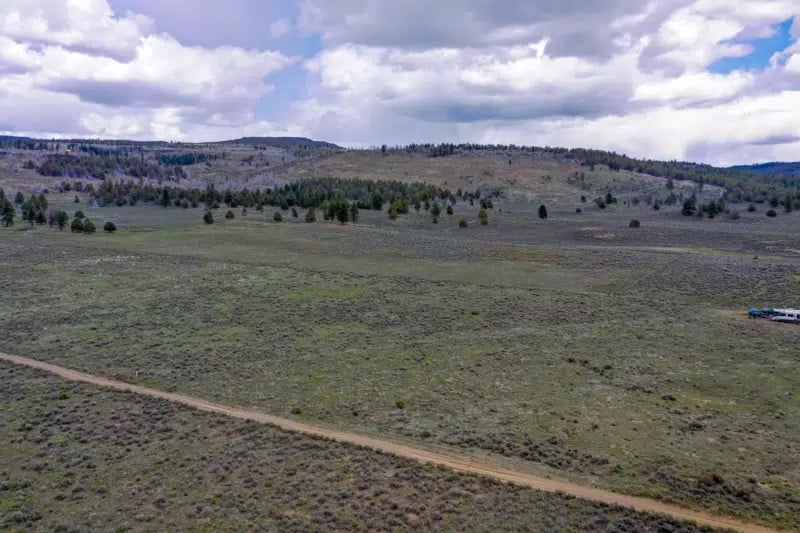For many individuals, buying a new home or a piece of land does not seem all that different. The reason is that both acquisitions are considered to be a property purchase. Both acts as a purchase of assets ensuring security and financial establishment.
However, there are many differences that you should keep in mind when considering investing in real estate. You should be aware of all the pros and cons related to both investment possibilities.
Here are some significant differences between buying land vs. home.
Table of Contents
Maintenance
One of the major benefits of buying land is that plots are simple to take care of.
Although, this doesn’t mean that you can invest in land and then completely ignore it. But managing a piece of land can be far less complicated than managing other kinds of residential and business assets.
There are several decisions that need to be made when investing in a home. For example, remodeling, repairs, and even basic utilities. There are no such requirements to consider while buying land.
In contrast, while considering investing in land vs. home, it isn’t even necessary to regularly visit your land, especially if you’re buying it as an investment. You won’t have to worry about paying any utility bills. Additionally, the property taxes assessed on your land aren’t excessive.
Financing
It can sometimes seem difficult to get financing from banks for the purchase of land. Many institutions that would typically finance real estate or suburban homes won’t do so for tangible investment like land. This may seem like a significant drawback while buying land vs. house, but there are always other options.
Most financial advisors typically refrain from taking this kind of risk because they view it as being extremely dangerous. However, there are land investors that do offer their own financing, making the whole process much easier. So, don’t feel like all hope is lost, because, with a little bit of research, it can all be possible.
Besides, there are different types of loans available for buying a house vs land.
Also, it is important to note that maximum home loan tenure in the United States is 30 years and 15 years for land or plot. However by opting for a joint loan, you can opt for extending the tenure at competitive interest rates while buying land vs. buying a home.
Authority
While considering which is better between buying land or house, authority and utilization of property in question is necessary. No matter how much land you have, the decision to buy and keep it as an investment is entirely up to you.
The owner of the land is completely free to use their land in all respects. They can also use it for cultivating crops, building a house or farm, or both.
Of course, as an owner, you’ll have to exercise caution to ensure you don’t exceed your set budget in land investment.
Following the terms of your land contract, you must obtain licenses and abide by all laws and ordinances. However, you would still be able to design your home (if you choose to build one) based on your personal preferences.
Versatility
Another important point that you must note while considering buying land vs. home is the property’s versatile nature. This implies, how well or in how many ways you can use the property to improve the scope for better ROI.
For instance, if you are buying land in USA, you can utilize the plot for diverse purposes depending on your investment goals. If your plan is to build a home for your family, the land can support your plans to build a dream house. Furthermore, you can also build an apartment or any other residential property and earn rental profits for a long time.
Besides residential purpose, you can also use the plot for commercial purposes as well. Your plot will be a great source of income by setting up commercial infrastructure like malls, restaurant showrooms or a simple warehouse.
You can also utilize the plot of land for agricultural purposes or to install set up for renewable and off grid energy solutions like solar panels. These shall help you earn significant profit in the long run as the demand for off-grid power is going higher.
On the other hand, the end use option for a house or a similar property is comparatively very less than a land. After purchasing a house, you would be required to make a reasonable expense for renovation and repair. Furthermore, houses can also become your source of income if you are renting them or are selling the house in future.
However, unlike plots of land, houses cannot act as a hedge against inflation. The value of houses also tends to decrease with time whereas; prices of land tend to increase.
Passive Source of Income
Both land and property can act as a passive source of income for real estate investors. However, if you are planning to opt for real estate investment to generate passive income, plot of land is a wise choice.
As the price of land rises in due course of time, you can rent or lease it for different activities as per growing demand. These activities can range from farming, parking spaces, warehouse zone or any recreational activity.
However, options to lease residential properties like houses and apartment for passive income are also limited. You would also earn significantly less amount by renting a residential property than you will earn by leasing land.
Higher Resale Value
When deciding whether to buy a land vs. house for investment, it is important to consider its potential for its higher resale value.
On this note, it is necessary to keep in mind that a plot of land is typically easier to sell than a home. The explanation is simple: the value of land increases over time but the resale value of a home gradually decreases.
This implies, with time, your home will consistently decrease in value. Even though you might be able to promptly rent out your home for a reliable and regular source of income. However, with time and routine wear and tear, its economic value will decrease over time.
The value of your house can also decrease as a result of the development of new, contemporary neighboring buildings that offer greater amenities. This acts as an edge for investors to buy different types of lands over houses.
Alternatively, the worth of land increases rather quickly in contrast to homes. Inflation is the value of the property is thus a major factor to consider while buying land vs. house. This is particularly true if the land is situated in a well-known or well-equipped location. Also, a sizable portion of wealthy buyers always favor purchasing land as an investment over pre-built houses.
Further, don’t forget that it could be challenging to sell an old house. As the majority of homeowners need to put both time and money into addressing significant issues to make their homes appealing to prospective buyers.
This is arguably one of the most crucial questions to ask when buying land -Will the land’s resale value be higher than its purchase value?
Despite the lack of immediate revenues, purchasing land is a wise decision for people looking to make long-term investments. The high resale value will compensate for the fact that the land can simply lie there for a long period without producing any profit.
The Land value summary survey report USDA, National Agricultural Statistics, shows that the value of cropland has increased by an average of $320 per acre (7.8%) from the previous year 2021.
Source: USDA NASS
Source: USDA NASS
Better Investment Option
Both types of investments have their fair share of benefits and drawbacks while considering the difference between buying land and a house. But purchasing land is frequently regarded as a superior option due to the numerous advantages it offers.
For instance, you will benefit if you buy USA land as there are minimal restrictions enforced by the USA government. Additionally, the value of land has been steadily rising and is predicted to continue doing so.
If you ask yourself – why buying land is a good investment, you can come up with several reasons such as –
- Compared to property, buying land requires less capital input.
- Buying land vs. house requires extremely less maintenance compared to a house.
- Due to the varied client expectations, selling a house at the optimum price is more difficult than selling land at high prices due to the great demand for it.
Final Words
The main difference between buying land vs. home ultimately comes down to your purpose of investment.
Going ahead and buying a house rather than a plot of land may save you both time and money. However, if you intend to construct a home and lease it out, a land can be a better option. On the other hand, purchasing a plot of land can be a far better choice as financial investment for the long run.
Furthermore, whether you’re buying a land or house, it’s in your best interest to have a seasoned real estate agent on your side for better land buying opportunities.
Working with an experienced expert like APXN Property offers many benefits, including helping you to understand the market. Knowing when the real estate market is experiencing a bullish phase will help you make fruitful house or land investments. You’ll increase your future earnings by conducting the required research and getting expert assistance.















